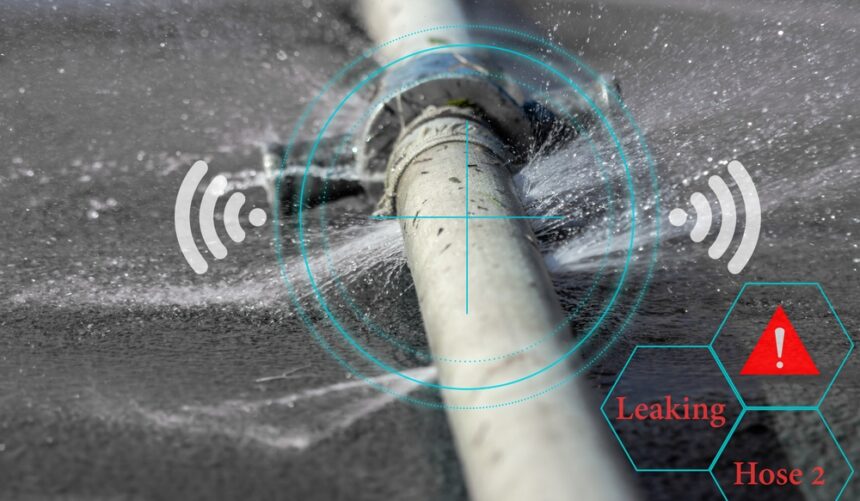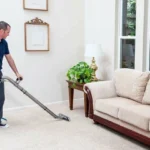Have you ever walked into a room that smelled of mildew? Maybe your floorboards felt a little softer, or your water bill climbed even though nothing changed. That’s how hidden leaks can impact your home.
Although devastating, experts are capable of fixing leaks before they cause more damage. If you are curious about the process of leak detection in Charlottesville, VA, read on as we explore how professionals identify and repair leaks.
The Real Cost of Hidden Leaks
Hidden leaks are costly to fix because of how difficult they are to find. Water quietly escaping behind walls, under slabs, or in ceilings weakens your home’s structure and also invites mold, making the problem a must-fix and fast. Ignoring early signs often leads to thousands of dollars in avoidable damage.
Wondering if you’re dealing with hidden leaks? The signs are easy enough to notice. A musty smell in a specific room is a dead giveaway that a leak is hidden somewhere in the area. Other signs to pay attention to are peeling paint, spikes in your monthly bills, and sounds of running water even when all faucets are off.
“Most people wait until damage becomes visible before calling a water leak detection expert, ” says a licensed master plumber in Virginia. “But by then, the leak has already done its worst.”
Your Home’s Subtle Warning Signs
The first signs may show up in your utility bills or as faint sounds. Sometimes, they only appear as unexplained moisture in strange places.
Look and listen for:
- A spinning water meter when no water is running
- Unexplained puddles or wet spots on floors
- Warped flooring or stained ceilings
Don’t ignore signs just because they’re small. Moisture always finds a way to grow bigger problems.
How To Identify The Source of Leakage?
Before anything can be repaired, professionals must pinpoint exactly where the water is escaping. That means looking past the obvious and investigating deep into your home’s structure.
Tools of the trade include:
- Moisture meters – detect damp areas behind walls
- Thermal cameras – spot temperature differences caused by hidden moisture
- Acoustic sensors – pick up the sound of water escaping from pipes
Only when the source is confirmed can repairs begin with minimal disruption to your home.
The Lifespan of Pipes
Pipes don’t last forever. Over time, metal corrodes, plastic degrades, and joints loosen. This is especially true for older homes or areas with hard water.
Many leaks start from within, where no one can see. Age, shifts in soils, and pressure fluctuations can all cause pipes to wear out.
“Even new homes aren’t immune,” notes a technician. “We’ve found slab leaks in houses less than five years old due to poor installation or shifting foundations.”
Why DIY Detection Falls Short
Trying to find a leak yourself is a poor use of time, as it often leads to damage you didn’t plan for. Cutting open walls or pulling up flooring without knowing exactly where the leak is can cause unnecessary destruction.
Professional leak detection avoids:
- Ripping out large sections of drywall
- Digging blindly into your yard
- Replacing pipes that aren’t broken
The key is precision. Experts use technology to detect, confirm, and fix leaks with surgical accuracy.
When Water Travels Underground
Slab leaks are especially difficult to find. These occur beneath your home’s concrete foundation, often out of sight for months. Symptoms may look like minor cracks in the floor or warm spots under your feet.
Signs you may have a slab leak:
- Water seeping from the base of the walls
- Constant damp carpets or flooring
- Unexplained mold growth in rooms with no plumbing fixtures
How Landscaping Can Lead to Leaks
Did you know that trees and plants can compromise your plumbing? Tree roots love moisture and can grow into underground pipes, cracking or clogging them.
To protect your pipes, be sure to plant trees or shrubs away from sewer lines. You could also use root barriers when landscaping and inspect your plumbing for damage, should large trees be present on your property.
Leak Prevention Starts with Routine Care
Prevention is still your best defense. Simple maintenance and seasonal checks can keep plumbing problems from ever starting.
Homeowners should:
- Check for visible signs of corrosion on exposed pipes
- Water pressure that’s too high can damage fittings
- Inspect under sinks and around toilets regularly
Schedule annual inspections. A licensed plumber can spot trouble long before it causes a mess.
Many homeowners ignore hidden leaks, but the damage they cause is undeniable. If your home is showing signs of moisture, or you simply want peace of mind, now’s the time to get leak detection services involved. Because in the fight against hidden leaks, the speed of action can make all the difference.


